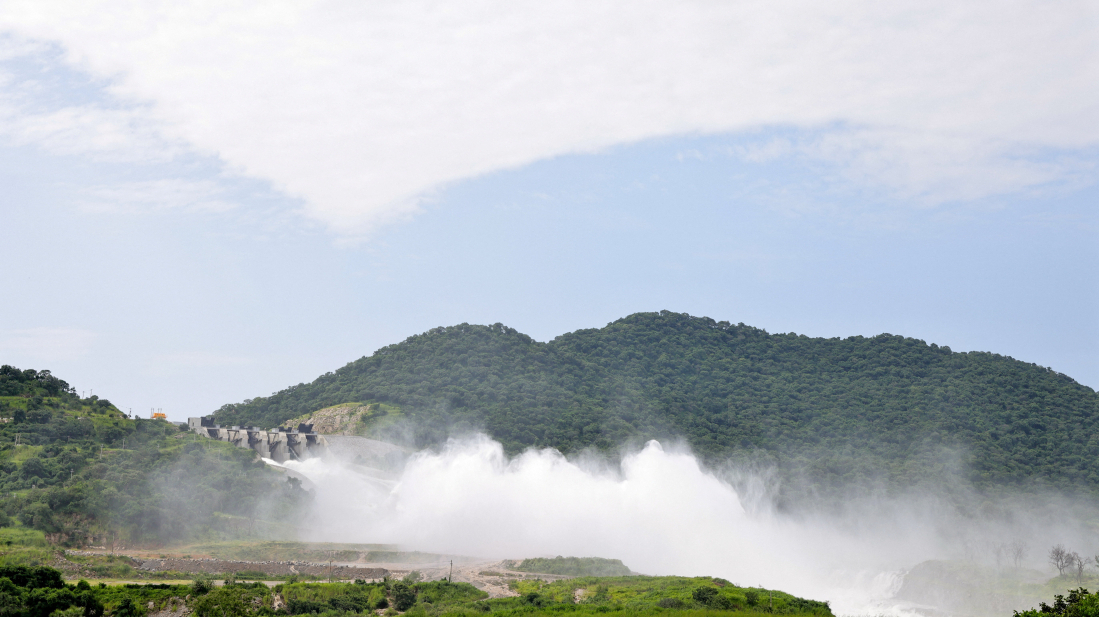Kazakhstan vows to fast-track AZAL crash investigation amid rising diplomatic tensions
Kazakhstan has vowed to speed up its investigation into the Azerbaijan Airlines (AZAL) crash near Aktau, as mounti...

Egypt on Friday blamed Ethiopia for “reckless and irresponsible” management of the Nile, saying unilateral operations at the Grand Ethiopian Renaissance Dam (GERD) have worsened flooding in Sudan and pose a direct threat to Egyptian lands and lives.
Egypt has blamed Ethiopia for recent Nile flooding, saying operations at the Grand Ethiopian Renaissance Dam (GERD) have worsened conditions in Sudan and threaten Egyptian lands and lives.
The Ministry of Water Resources and Irrigation said the floods were caused by “sudden convergence of large and unexpected water volumes” from the dam, combined with delayed rainfall in Sudan and rising White Nile levels. The ministry accused Ethiopia of violating international law and using water as “political exploitation at the expense of lives and regional security.” No immediate response was reported from Ethiopia.
Authorities in Egypt have activated precautionary measures along the Nile. Prime Minister Mostafa Madbouly warned that water levels could continue rising through the end of October, particularly in the northern governorates of Monufia and Beheira. Local officials instructed residents to evacuate vulnerable areas, and floodwaters have already submerged homes and farmland in Dalhamou, Ashmoun District.
The warning comes after severe flooding in Sudan, which officials linked to Ethiopia opening the GERD gates without coordination with downstream countries. Foreign Minister Badr Abdelatty stressed that Egypt “fully retains its right to defend its water rights and existential interests by all means” if threatened.
The GERD, inaugurated on the Blue Nile on 9 September after 14 years of construction, has long been a source of tension between Ethiopia, Sudan, and Egypt over water levels, filling schedules, and operational control.
The Kremlin is utilising the recent United States and Israeli military strikes on Iran to validate its ongoing war in Ukraine. Russian officials are pointing to the escalation in the Middle East as evidence that Western nations do not adhere to international rules.
Saudi Arabia’s state oil giant Saudi Aramco closed its Ras Tanura refinery on Monday following an Iranian drone strike, an industry source told Reuters as Tehran retaliated across the Gulf after a U.S.-Israeli attack on Iranian targets over the weekend.
The Middle East crisis intensifies after the deadly attack on the compound of the Supreme Leader of Iran Ali Khamenei on Saturday that killed him, other family members and senior figures. Iran has launched retaliatory strikes on U.S. targets in the region.
U.S. President Donald Trump said the U.S. military has enough stockpiled weapons to fight wars "forever"; in a social media post late on Monday. The remarks came hours before conflict in Iran and the Middle East entered its fourth day.
Türkiye raised its security level for Turkish-flagged vessels in the Strait of Hormuz to Level 3 on Sunday (2 March). The development follows Iranian restrictions on shipping after U.S. and Israeli strikes and confirmation of Supreme Leader Ali Khamenei’s death.
Strikes across the Middle East are intensifying, fuelling travel disruption, driving up global energy prices and forcing diplomatic missions to shut their doors as tensions continue to rise.
U.S. President Donald Trump has said the United States has a “virtually unlimited supply” of munitions and is capable of sustaining military action indefinitely, as the conflict with Iran entered its fourth day.
The United Nations has called for an investigation into a deadly attack on a girls’ primary school in Iran, which Iranian officials say has killed more than 100 children. The U.S. has said its forces “would not” deliberately target a school.
U.S. first lady, Melania Trump chaired a UN Security Council meeting on children and education in conflict on Monday (2 March), a move criticised by Iran as hypocritical following U.S. and Israeli strikes that triggered a UN warning about risks to children.
Start your day informed with AnewZ Morning Brief. Here are the top news stories for the 3rd of February, covering the latest developments you need to know.
You can download the AnewZ application from Play Store and the App Store.

What is your opinion on this topic?
Leave the first comment